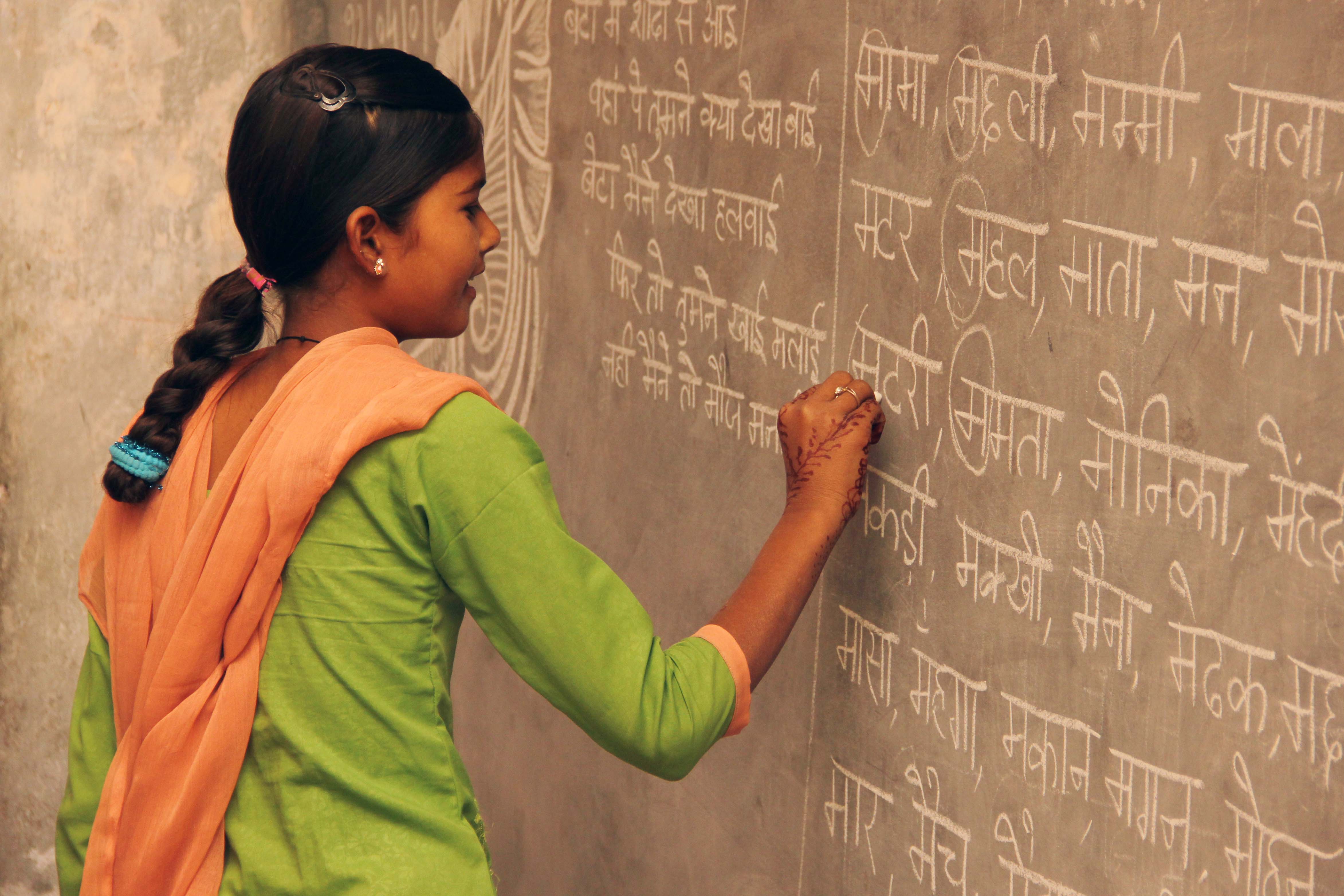Due to its contemporary relevance we are yet again sharing this piece that appeared in The New Leam
India offers us a wide range of language traditions. Yet the major emphasis is laid upon learning English, often neglecting the mother tongue and its associated literature and culture. The global world has put us in a dilemma where we struggle to know how the question of language pedagogy must be approached. Here is an interesting idea to think about.
“I can talk English, I can Walk English” is a well-known dialogue from a popular Indian film. Upon careful scrutiny this dialogue indicates and clearly reveals a major challenge that India as a Globalized nation is faced with. There is no doubt that we seem to have accepted English as an international language without knowing which we cannot equally participate in the opportunities that are offered by our global context.

But what about the several other languages that exist in the world? If you look at our own context it would be hard to deny that the regional languages are facing a major blow by this hegemonic invasion of English. Today English is no longer just a language but a “way of life”, an attitude or rather a form of social capital that one strives for.
Bill boards and advertisements that promise efficiency in English just within a few weeks are abundant in every corner of the country and people yet unable to overcome the colonial hangover continue to queue up before these institutions hoping to learn English. Even in Schools much emphasis is laid upon learning the English language because without the acquisition of that language the student is likely to suffer in the future.
Parents too may have the opinion that the mother tongue may just be picked up for casual conversations and no serious effort needs to be made to develop a liking for the language in the child thus relegating the status of their own language to the margins. The school curriculum ensures that the student gains command over both written as well as spoken English paying little and insignificant attention to other languages. Even the pleasure of reading Comics has been hegemonized by the English language from Calvin and Hobbes to Archie to Dennis the Menace even here the regional languages are far behind in the race. Not very long ago there was a time when our childhoods were marked with comics like Chacha Chowdhary, Champak, Chanda Mama etc. Thanks to this obsession for English that these comics are now getting obsolete.
Even the sort of television programmes that are being watched these days are coloured with this obsession to learn English from a tender age. A character like Bheem who is an Indian Mythological character is broadcasted in English and children watch them religiously. Adventures of Tin Tin is another such cartoon that is watched widely by children and broadcasted in English. Channels like Doordarshan are just “archives” now.
The argument here is not to rule out English language but to assert the concern regarding the excessive obsession with English Language and the resultant negligence of Indian Languages. The growing insecurity among parents and pedagogues that if too much energy is devoted to learning the mother tongue, the child may end up not learning the English language at all or may get confused is a reflection of how we have allowed ourselves to be completely seduced by the logic of hegemonic cultures. Let us not forget that in the Indian context the child is naturally born into an environment that allows him the scope to learn multiple languages/dialects ranging from Bengali, Tamil, and Marathi to Urdu. Each language is a door to a specific culture, literature, music and philosophy. When we assume that one language is inferior to another, we deprive the child of the world of possibilities that could have opened up before him had we not been so insecure.
Children are extremely efficient at picking up the nuances of language and do have the capacity to grasp the distinct sounds and pronunciations that distinguish one language from another, moreover the school and the world outside is a context that would bring the child face to face with English as a medium of communication. But to deprive the child of learning the language of his parents is to deprive the child of cultural richness and also a matter of underestimating the potential of a human being who is capable of learning more than one language at a time.
It is in this context that we wish to engage our readers in a very interesting and important debate, ‘IN THE INDIAN CONTEXT, SHOULD EMPHASIS BE LAID UPON JUST ENGLISH OR SHALL THE LOVE OF THE MOTHER-TONGUE BE SIMULTANEOUSLY ENCORAGED?’
This piece is published in AUGUST 2016 issue.
The New Leam has no external source of funding. For retaining its uniqueness, its high quality, its distinctive philosophy we wish to reduce the degree of dependence on corporate funding. We believe that if individuals like you come forward and SUPPORT THIS ENDEAVOR can make the magazine self-reliant in a very innovative way.











